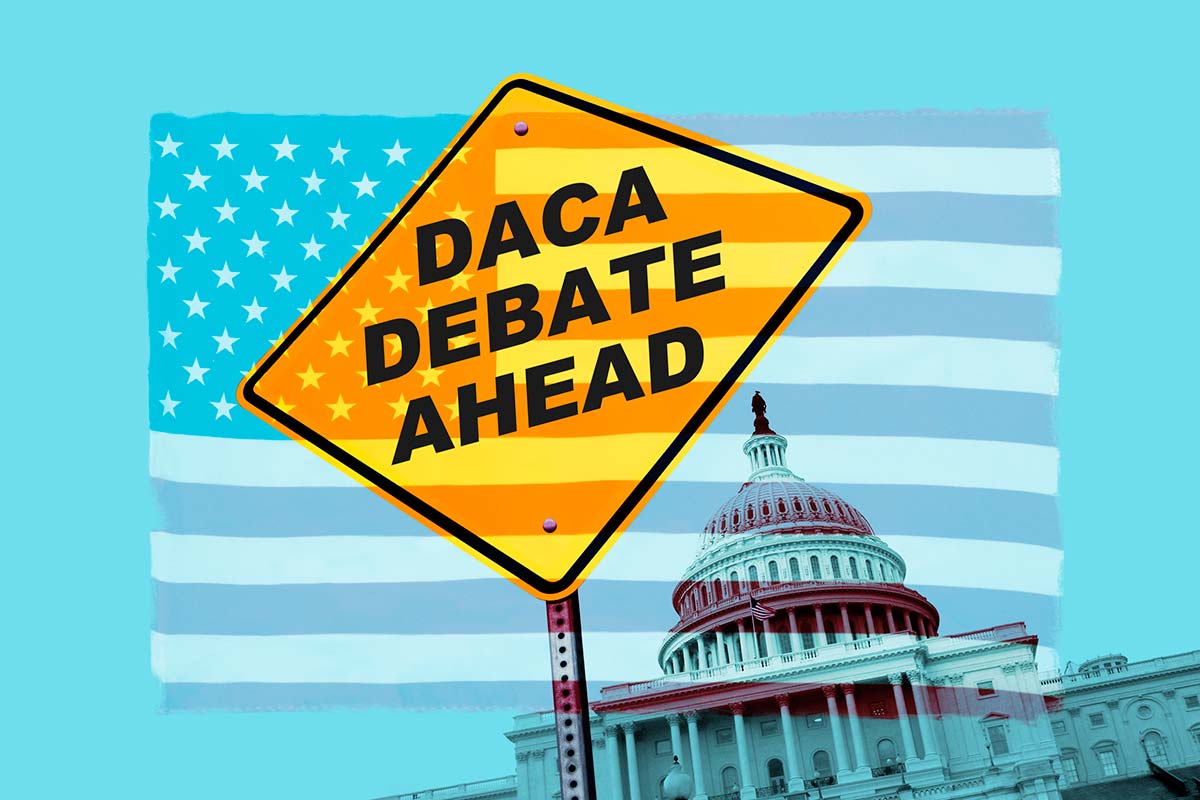On June 18, 2020, the U.S. Supreme Court rejected the Trump administration’s actions in attempting to terminate the Deferred Action for Childhood Arrivals (DACA) as arbitrary and capricious, or unlawful. Specifically, the Court ruled the Trump administration failed to provide adequate justification for terminating the program. The main impact of this ruling is that DACA will remain in place, at least for now. The almost 650,000 active DACA current and previous DACA recipients who are currently working and living in the U.S. will be able to renew their DACA participation. However, what is less clear is the fate of immigrants who wish to apply for DACA benefits but never have received benefits from the program in the past. Questions also exist about whether DACA recipients can seek authorization to travel outside the U.S.
New or Initial DACA Applications
U.S. Citizenship and Immigration Services (USCIS), unsurprisingly, has not been accepting of the Court’s decision, stating that it has no basis in law. Although USCIS does not have the constitutional authority to reject or decline to follow the Court’s decision, it has, for example, refused to accept new initial applications for DACA, in violation of the decision. On its website, USCIS flatly states, “[w]e will reject all initial DACA requests from aliens who have never previously been granted DACA.“
Furthermore, although USCIS is granting renewal requests for DACA participation and work authorization, it limits them to one-year renewal grants. In effect, this doubles the $495 fee for applying for renewal of work authorization, since recipients now must renew their employment authorization every year. USCIS will not, however, take any action to rescind existing two-year grants of deferred action or work authorization.
Federal Court Response to USCIS Refusal to Accept New DACA Applications
On June 30, 2020, the U.S. Court of Appeals for the Fourth Circuit issued a mandate that ordered the federal government to reinstate DACA to its pre-recission status from 2017. Almost a month after the Supreme Court’s decision, a federal district court judge in Maryland ordered USCIS to accept new DACA applications. During that hearing, attorneys for USCIS maintained that it had neither accepted nor rejected new DACA applications, but that they had placed them “on hold” pending government decisions about how to handle the issue. However, data later released by USCIS stated that as of September 2020, it had received 3,189 new applications for DACA – and had rejected every application. As of this date, litigation continues in another suit in U.S. District Court in New York. However, USCIS has refused to comply with the U.S. Supreme Court decision requiring it to process new DACA applications.
Travel Authorization for DACA Recipients
USCIS also announced that it had changed the standards under which it would grant advance parole for travel outside the U.S. for DACA recipients. It will summarily reject any pending application for advance parole that individuals previously filed according to the previous standards. Now, USCIS intends to grant advance parole to immigrants on a case-by-case basis and in only rare circumstances, based on INA Section 212(d)(5). USCIS also states that all advance parole decisions will be entirely within its discretion.
Some examples of situations in which USCIS would consider granting advance parole to DACA recipients include travel to support national security or U.S. federal law enforcement interests, to receive life-sustaining treatment not available in the U.S., or to support the immediate safety, wellbeing, or care of an immediate relative, especially if they are minor children.
Learn More About How We Can Help
The attorneys at LBE Law Firm handle a wide range of cases, emphasizing various aspects of immigration law, including seeking relief for immigrants who are enrolled in DACA. We also represent clients in employment-based visas, investment-based visas, and family-based immigration petitions. In addition to immigration law matters, we also regularly handle bankruptcy, family law, and other general legal matters for our clients. Contact our office today at 1-424-LBE-LAW4 (1-424-523-5294) (call, text, or WhatsApp) or via email at info@lbelawfirm.com.


